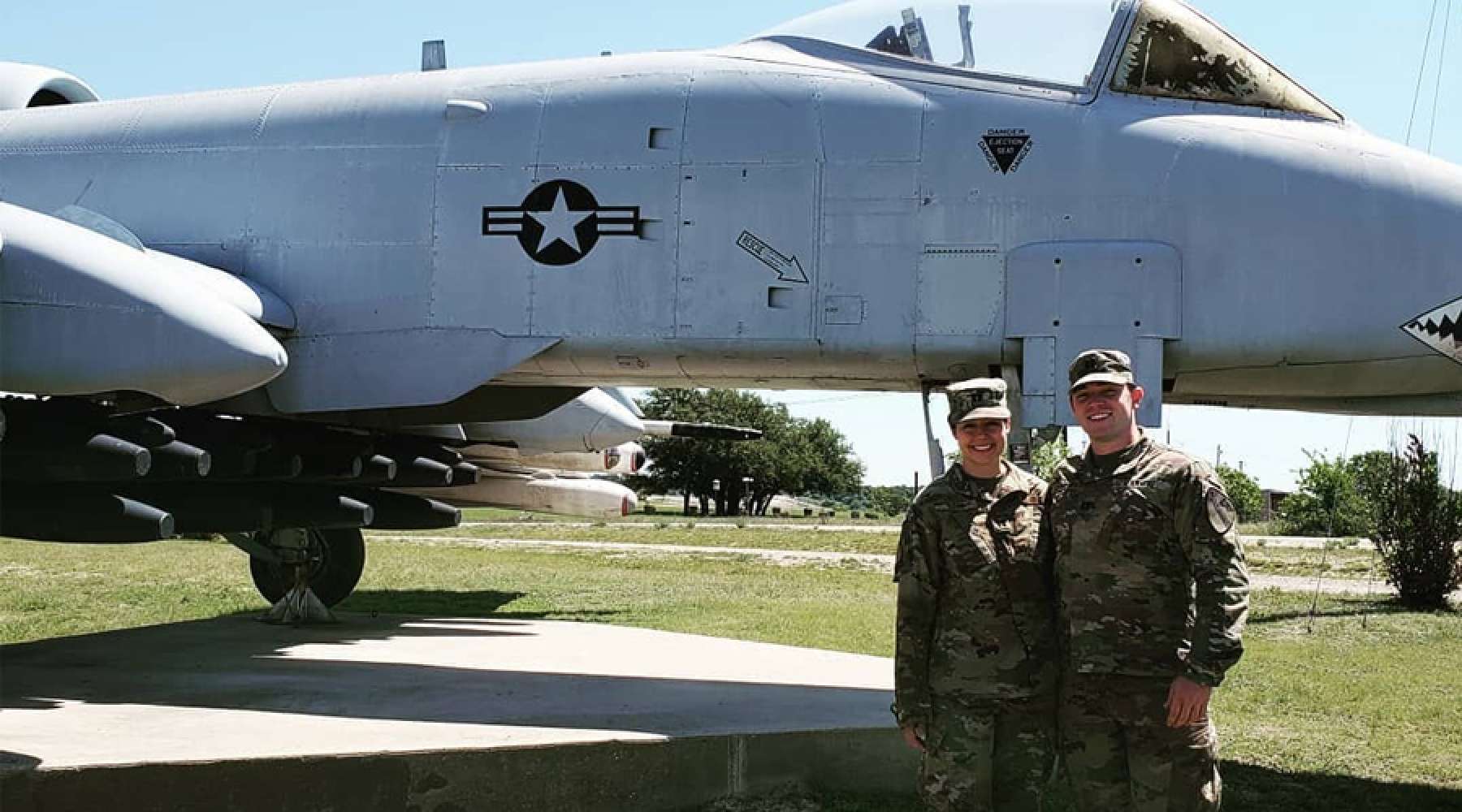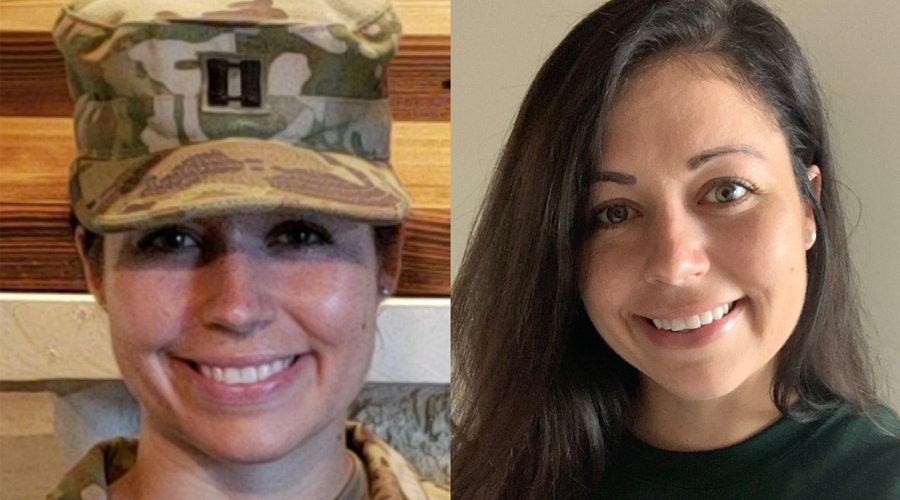
To learn more about what distinguishes Tuck among top-tier business schools and what you need to know to transition from the military into the right MBA program, attend the 2020 Tuck Veterans Symposium on Saturday, September 26 through Monday, September 28. During the event, you’ll get a chance to see what distinguishes Tuck among top-tier business schools and what you need to know to transition from the military into the right MBA program. Register here.
1. Space to redefine yourself.
The military provides structure and at times, emphasis on conformity (think back to basic training). You are given a task and probably told once or twice to “bloom where you are planted.” You become very good at going with the flow and “embracing the suck” when things are less than ideal. When you leave the military, the opportunities seem endless. You transition from having a job and location passed out every few years, to an open sea of options for lifestyle, industry, career path, location, and more. You choose based on what is best for YOU—not the overall needs of the military. It can be a little overwhelming.
Transitioning from the military is hard. It will still be hard if you attend a top-tier MBA program (please don’t let anyone convince you otherwise). One of the largest reasons it is difficult is because it requires a lot of introspection and self-reflection which are not easy things to do. Military veteran or not, Tuck forces you to reflect on what you might actually want to do and provides resources to explore those paths. The smaller class size means that the resources are also allocated to a smaller number of people and in turn, you have a higher-touch experience with career services, industry centers, and faculty experts.

Stephanie Puzak T’22 spent six years in the Air Force as a cybersecurity officer.
There are no longer bounds on what you can pursue, and it is not limited to your AFSC or MOS experience. If you are interested in starting a company, pursuing a career in technology, healthcare, venture capital, energy or the public sector Tuck has a center for that. If there is not a center for your desired career path (see: consulting) then Tuck has clubs focused on a variety of topics and careers. The class is also intentionally diverse and likely has someone coming from the industry you desire to enter. The alumni network is vast and strong, standing by ready to support as you redefine yourself and what path you want your career to take. The kicker is all these things are tied together with a close-knit community that thrives on collaboration and support.
The resources are essential, but I would be remiss if I did not at least also touch on location. Tuck also provides real, unfettered access to natural space. Dartmouth is surrounded by mountains of trails for hikes, access to ski resorts, golfing, and general outdoor activities. Sometimes the best way to reflect is to simply disconnect so physical space is also important.
Take the time you need in your transition to understand what you want in your next chapter of life and use the support available via resources at Tuck to help redefine what that looks like.
2. Focus on creating your brand of leadership.
Most employers value leadership but few organizations train and emphasize leadership as much as the uniformed services. Similarly, most business schools value leadership but few emphasize and focus on leadership development like Tuck does. While military veterans’ leadership experience is already highly valued at Tuck, veterans are also encouraged and supported to define their personal brand of leadership.
If you are considering applying to Tuck, you may have perused the essay questions. Tuck values individual experience and holds it in high regard while reviewing applications. So much so, that the applications asks specifically how you will contribute to the fabric of Tuck and how you have helped others succeed. Identifying that you have valuable leadership experience and will be encouraged to share that experience with your classmates is something I felt was unique to Tuck. Simply by speaking with current Tuckies who are veterans, you learn just how much their experiences are valued and lauded at Tuck. Learn more about current veterans.
The mission of Tuck is to “develop wise, decisive leaders who better the world through business.” This mission is integrating into everything at Tuck—the core and elective curriculum, co-curricular and extracurricular activities all encourage students to develop their own brand of leadership through academic work, experiential learning, and reflection.
The military is a great place to learn and develop as a leader by seeing and doing, but I did not experience enough opportunities for reflection. When stepping out of uniform, I think it is essential to take time to develop greater self-awareness. Reflection and feedback is one of the best ways to build self-awareness. That reflection can then feed into what leadership style works best for you (which is not a one-size-fits-all solution).
Choosing Tuck means you are committing to sharing your leadership experience with your classmates but also defining your personal leadership brand with hopes to better the world post-MBA.
3. The strength of community.
It is no secret that Dartmouth is located in more of a rural location than many top business schools. The class size is on the smaller end, sitting below 300, and the city of Hanover has a population in the tens of thousands rather than the millions. On the flip side, the size and location faciliate an unparalleled depth of community. That depth of community also extends to the alumni network. I have been impressed over and over again by how often alumni have taken calls with me to share their time and experiences at Tuck and beyond. I’ve also been impressed with how close-knit the community is on and off-campus.
In the military, moving is a way of life but you know that, at a minimum, you have a built-in community waiting after each move. Each base will have individuals with similar experiences you can relate to and become “instant friends” with you and your family. Your spouses or significant others are invited to events and included. You can reach out to leadership or other military members to learn about their experiences or locations. Tuck is very similar. To emphasize this, I invited my TP (Tuck Partner) Matt to do a cameo in this section by sharing his personal experience at Tuck. Matt is also a military veteran and working full time (global operations – technology industry) while I am studying at Tuck. In the T’22 class, 30 percent of students attend with partners.
TP’22 Matt’s feedback on the Tuck community:
“Crazy year and global pandemic aside, the ability to work remote has afforded me the unique opportunity to accompany my fiancee to Tuck, which has thus far been an incredible blessing. One of the things that stuck out to us during Steph’s courtship of the various MBA programs was how above and beyond Tuck specifically went to make the partner feel welcomed into the Tuck community, not just the prospective student. This was a big deal to us and went a long way in solidifying the right culture fit, as we knew in many ways we would need to tackle this next stage of Steph’s professional development as a team. And we wanted to invest our time with an organization that treated us as such. To that end, the Tuck community has done a phenomenal job in organizing safe, inclusive events for students and their TPs. I genuinely feel a part of the community and look forward to friendships and experiences we’ll foster here.”
Want to know more about the partner perspective? Check out this blog post by a TP’21 on life in the Upper Valley.
All in all, it is important to remember that transitioning from the military will be and is hard. You are redefining yourself outside of the uniform with no bounds on what is possible. Choosing a school that supports that journey is essential. Tuck’s unparalleled resources provide support as you redefine yourself, develop your brand of leadership, and integrate into a long-lasting community.
Stephanie Puzak T’22 grew up in Colorado and graduated from the United States Air Force Academy in 2012 (BS) and Sacred Heart University in 2016 (MS). She spent six years in the Air Force as a cybersecurity officer. Stephanie deployed once to the Horn of Africa supporting crisis action communications planning. After Stephanie transitioned from the military in 2018, she worked as a management consultant specializing in technology strategy in the commercial sector and innovation work in the public sector.